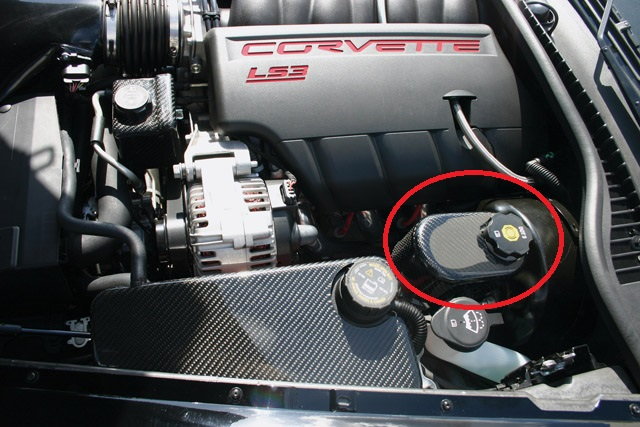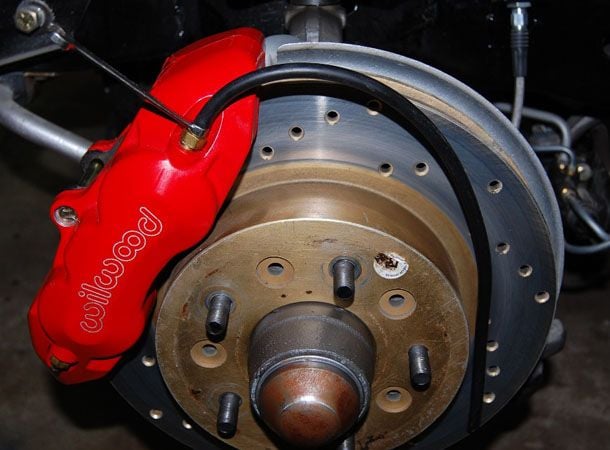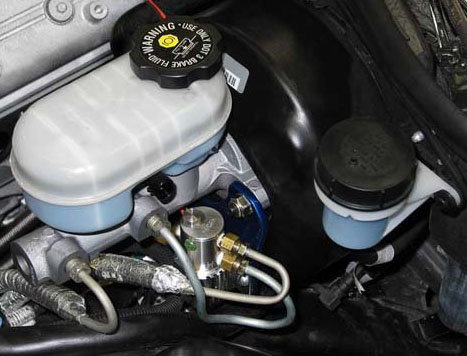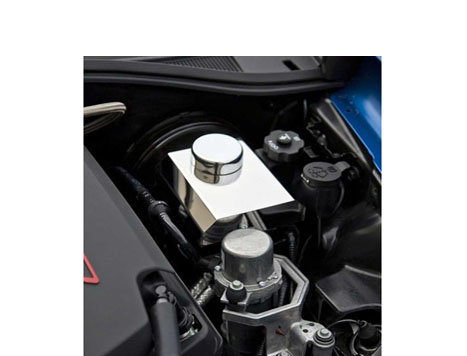C6 C7 Corvette: Why is My Brake Fluid Leaking?
Breaking and slowdown are almost an instinct. You never have to think if you will actually slow down, you just hit the brakes. That's why it's important to address any possible brake fluid leaks here and now.
This article applies to the C6 and C7 Corvette (2005-current).
Brakes aren't something you think too much about, but you absolutely count on them every time you drive. The brakes on your Corvette can slow you down from dizzying speeds to a complete stop in a matter of seconds. But in order for your brakes to perform right, they must have the right amount of fluid in the system. A brake fluid leak could be caused by a damaged reservoir cap, leaking bleed valve, or a faulty master cylinder. This article covers the necessary steps to help you diagnose the source of a brake fluid leak.
Step 1 – Check the reservoir cap
A weak reservoir cap could cause fluid leaks.
A reservoir cap does the simple job of containing the fluid inside the brake fluid reservoir. But when the seal or ring inside the cap becomes worn out or damaged, it will no longer do its primary job.
- When the engine is cool, gently unscrew the reservoir cap.
- Inspect the rubber seal or silicon ring inside the cap, and analyze the thread condition of the cap.
- Check for fluid on the actual exterior of the reservoir and on other components beneath it.
If the seal or thread is not as good as new, it's recommended to buy a new cap and re-evaluate the issue after a test drive.

Step 2 – Check the bleed valves
Bleed valves or bleed screws could be loose or worn out.
The bleed valve is a screw-like component that allows the brake fluid to be flushed during regular maintenance. A worn out or poorly-tightened bleed valve could allow brake fluid to leak under braking. If you notice brake fluid running down the brake caliper and inside the wheel, make sure to grab a wrench and ensure it isn't loose. If the valve seems to be as tight as possible but still leaks, you may want to buy a new bleed valve with new threading and sealant. Remember to always clean any spilled brake fluid right away, as it could easily eat through paint and metal.

Figure 2. Closeup view of a bleed valve. You can see the opening where the fluid is guided to the top nipple. 
Figure 3. Use a wrench to make sure the bleed valve is properly tightened.
Step 3 – Check the master cylinder
The master cylinder may be cracked.
A master brake cylinder distributes brake fluid to the calipers via the brake lines. According to multiple Corvette forums, stock C6 and C7 master cylinders aren't known to have any issues, but road debris or a simple manufacturing error could cause them to crack and leak. If you notice a "sweaty" (greasy) master cylinder, greasy components or spilled fluid nearby, a damaged master cylinder may be to blame.

Figure 4. Notice the master cylinder located right below the fluid reservoir. 
Figure 5. An aftermarket master cylinder made out of aluminium.
Related Discussions and Site
- Master Cylinder Failure - CorvetteForum.com
- Bleed Valve Issues and Repairs - CorvetteForum.com
- Faulty Reservoir Cap - Corvetteactioncenter.com






